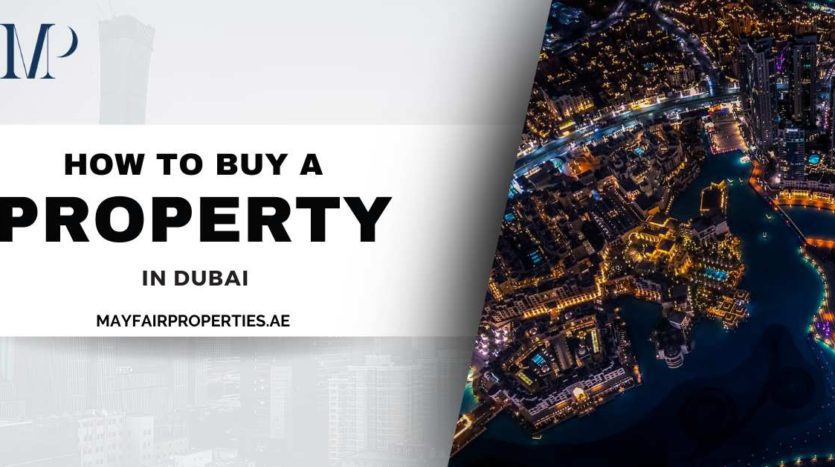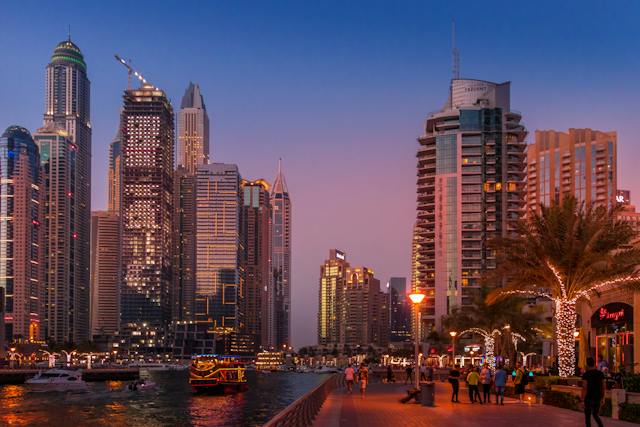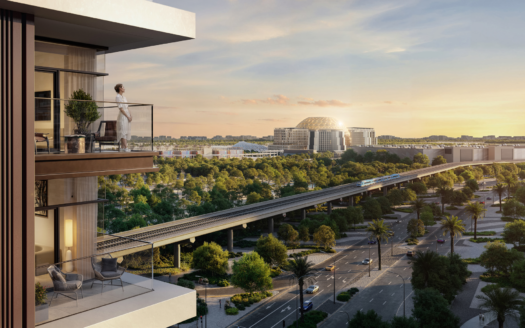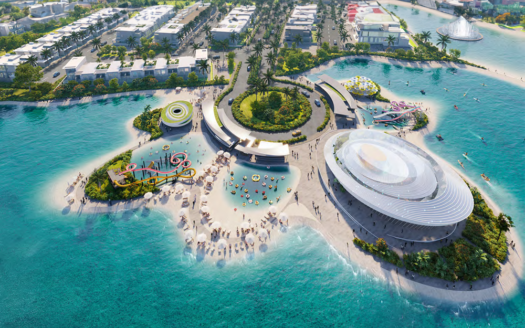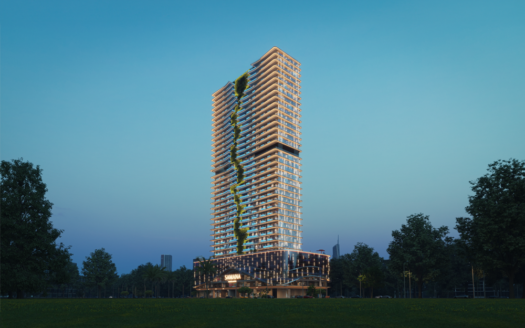How to buy property in dubai? Your complete guide
As the Middle East property market continues to flourish, the spotlight is on the UAE, where the luxury residential sector has experienced an unprecedented surge, especially since the beginning of this year. This raises the question of how to buy property in Dubai.
Mayfair Properties is a beacon of luxury and sophistication amid this thriving landscape. We are dedicated to delivering impeccable residential property advice enriched by meticulously researched insights.
Whether you want to acquire or invest in Dubai or Abu Dhabi, join us on a journey through the realm of Mayfair Properties, where the epitome of luxury awaits.
Why Invest in Dubai?
- Higher Rental Yields: First, you tend to get more than you invested in rental income. Dubai offers better rental yields, roughly 5-9%, compared to many established markets. That’s a solid return, giving you a consistent income flow from your investment.
- Affordable Property Prices: Property prices are reasonable, especially when comparing them to other international cities. Your million dollars can stretch up to 2,200 square feet in Dubai, which is quite spacious.
- Visa Laws For Investors: The UAE’s visa laws are investor-friendly. Pouring money into property here could snag you a residency visa that lasts anywhere from 2 to 10 years, depending on your investment size.
- Favorable Tax Conditions: Lastly, the tax situation is very investor-friendly. You don’t have to worry about property taxes or stamp duties in Dubai, which is a big plus compared to other markets.
The Law For Buying Property In Dubai
When considering buying property in Dubai, it’s crucial to grasp the legalities. Governed by Real Estate Law No. 7 of 2006, the Land Registration Law sets the ownership parameters. UAE and GCC citizens are typically eligible to own property outright. Foreign buyers aren’t left out—they can acquire property in zones designated for their ownership.
The choice between freehold and leasehold is a significant one for foreign investors. Leasehold ownership grants you a temporary right to the property, usually for a term of 99 years. This can be ideal for those not looking for permanent settlement.
On the other hand, freehold means you own the property and the land indefinitely. It’s a more profound commitment, offering stability and the freedom to manage the property entirely as you wish, including selling it or passing it on to heirs. Understanding these differences is fundamental when navigating Dubai’s property market.
Finding the Right Property in Dubai
-
Step 1: Deciding on Property Type
Begin by pinpointing the type of property you’re interested in. Since the allowance of foreign ownership in 2002, Dubai’s market has expanded to include a variety of properties such as apartments, townhouses, and villas.
These properties often have added benefits like security and communal leisure facilities, including tennis courts, swimming pools, and gyms. It’s also vital to ensure the property is in a foreign-approved area. Prestigious developments to consider are Emaar Towers, Jumeirah Gardens, International City, and Al Hamra Village.
-
Step 2: Online Property Search
The internet is a treasure trove of resources for property listings. You’ll find that both estate agents and property developers have a solid online presence. Estate agents are your go-to for resale properties, while developers will tempt you with off plan properties, some still under construction.
-
Step 3: Engaging Specialist Agents
Enlisting the help of specialist agents can streamline your search. These professionals are well-versed in the Dubai property market and can guide you through the options and regulations. Communication will be acceptable as many agents are proficient in English and accustomed to international clients.
Remember, employing an agent typically costs 2% to 5% of the property’s value. Always verify their credentials through the Real Estate Regulatory Agency (RERA) to ensure legitimacy.
-
Step 4: Property Fairs Attendance
Given Dubai’s burgeoning market, property fairs have become a hotspot for developers to showcase upcoming projects. These events occur globally, offering a chance to engage directly with developers.
It’s crucial, however, to verify the developer’s registration with RERA, information which is accessible on the Dubai Land Department’s website.
-
Step 5: Visiting Dubai
Nothing beats firsthand experience. Spend time in Dubai to get a feel for the city. View numerous resale properties, asking the same detailed questions you would back home. For off-plan purchases, inspect completed projects by the same developer for quality assurance.
While in Dubai, you can also explore listings in local newspapers and magazines and attend ongoing property fairs, providing a comprehensive look at what’s available.
Meeting Eligibility for Property Purchasing in Dubai
-
Prepare Your Identification and Documentation
When eyeing property ownership in Dubai, the first step is ensuring you have the necessary identification and visa documentation. Since a legal shift in 2002, foreign investment in real estate has become more accessible. While buying property in Dubai doesn’t require residency, your passport is essential for identity verification.
If you’re looking to stay, you’ll have to sort out residency, for which the UAE government offers a six-month “Property Holder’s Visa” for those exploring investments. To be eligible, the property must exceed a value of 1 million dirhams, approximately $272,000, and must be purchased as an individual rather than a company.
-
Manage Your Finances
Next, get a clear picture of the total financial commitment. The cost consideration should include the property’s price, initial deposit, transfer fees, agent fees, and potential currency exchange rate fluctuations.
While legal representation isn’t mandated, it’s wise to budget for legal assistance to navigate the paperwork, including a possible 2% land registration fee on new builds.
-
Secure Your Mortgage
Securing a mortgage in Dubai can be daunting due to stringent requirements and substantial down payments, often 20% to 50% of the property value. The preferred mortgage term spans 15 years, with 25 years as the maximum. For Indian residents, note that leveraging property in Dubai for loans or providing loan guarantees is off-limits.
Your monthly mortgage repayments and other living expenses should be at most 35% of your net income. Given the complexities of exchange control, professional financial advice is recommended. Keep abreast of mortgage regulations prone to frequent changes by consulting local news and resources from the Central Bank of the UAE.
Navigating the path to property ownership in Dubai requires careful preparation and understanding of the legal and financial landscape, ensuring you’re well-positioned to make a successful investment.
Buy Property in Dubai with Mayfair Properties
At Mayfair Properties, we specialise in navigating Dubai’s dynamic short-term rental market. Reach out to us for insights on the most lucrative rental locales, and discover how we can support your property acquisition, whether you’re looking for a vacation retreat or a dedicated investment property.
We empower property investors to enhance their rental earnings through strategic online listing enhancements, comprehensive cleaning, and maintenance service management, as well as offering expert guidance on property styling and professional photography services.
